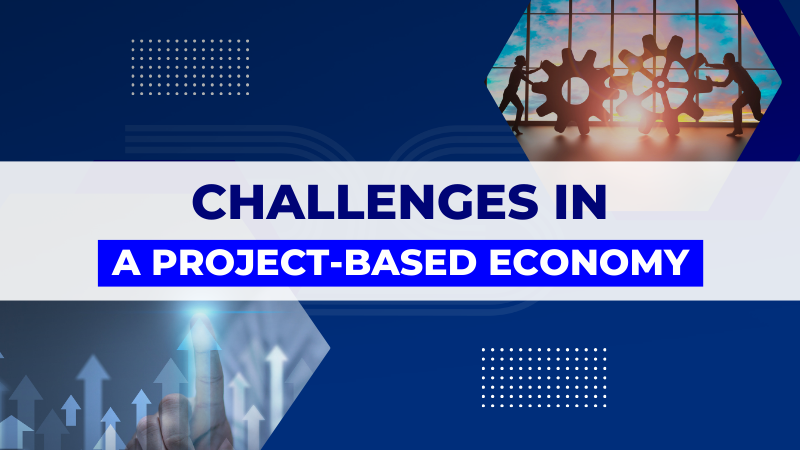
by DharamCW | May 11, 2024 | General
People in the Project Economy have all the skills and capabilities required to turn ideas into reality, regardless of the type of project they are working on. It is the process by which organizations provide value to stakeholders by completing projects, delivering products, and aligning with value streams.
Project-based work has well-defined goals, milestones, deliverables, and a start and end date. Projects can last hours, months, or years, depending on the project and business needs. However, the work is focused on business needs and objectives rather than specific roles.
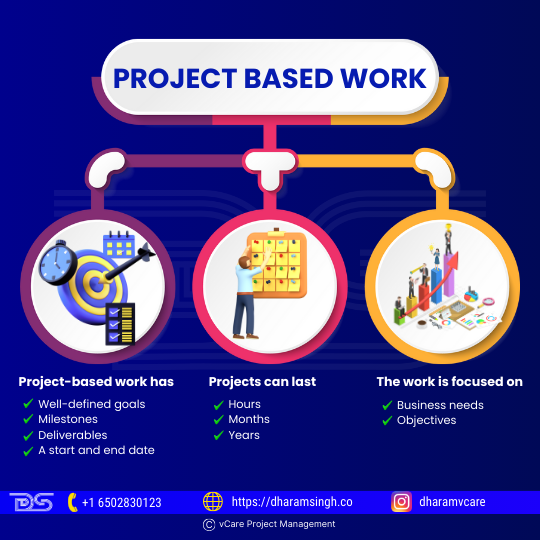
Project Based Work
Business leaders always want their teams to be agile and nimble. Adopting a project-based work mindset can help them achieve their goals. In addition, according to a recent MIT and Deloitte report, executives are increasingly viewing their workforce as an ecosystem, drawing on the diverse skill sets of their full-time employees and freelancers to meet business challenges.
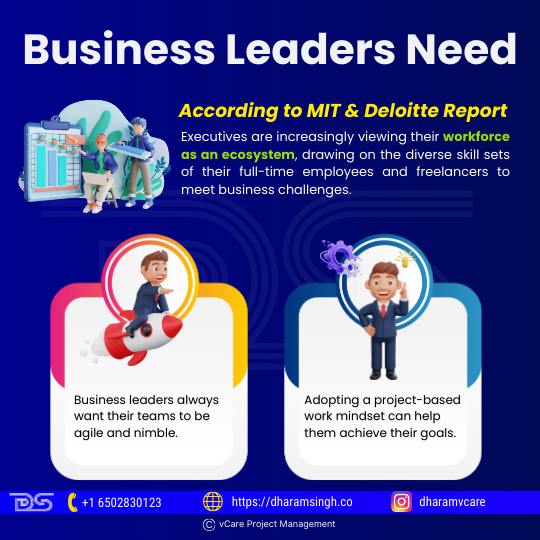
Business Leaders Need
The Project Economy Has Arrived
The Harvard Business Review Project Management Handbook (2021) by Antonio Nieto-Rodriguez states that:
- By 2027, nearly 88 million people worldwide are expected to be employed in project management, and the value of project-oriented economic activity is expected to reach $20 trillion.
- However, research shows that only 35% of global projects are successful, implying that project professionals waste time, money, and opportunity.
- To capitalize on the new project economy, businesses must adopt a project-driven organizational structure to ensure executives can sponsor projects and train managers in modern project management.
The Rise of the Project Economy
Berkley’s guide states that the rise of the Project Economy will play an essential role in the Future of Work. The following statistics from the below-mentioned survey make this statement more accurate:
- Almost 80% of executives believe the future of work will be project-based rather than role-based.
- More than 85% of all highly skilled independent contractors work in the Project Economy.
- According to the PMI, project-based economic activity will increase by 68 percent, from $12 trillion in 2013 to $20.2 trillion in 2027. Employers will require 87.7 million PM-related specialists by 2027.
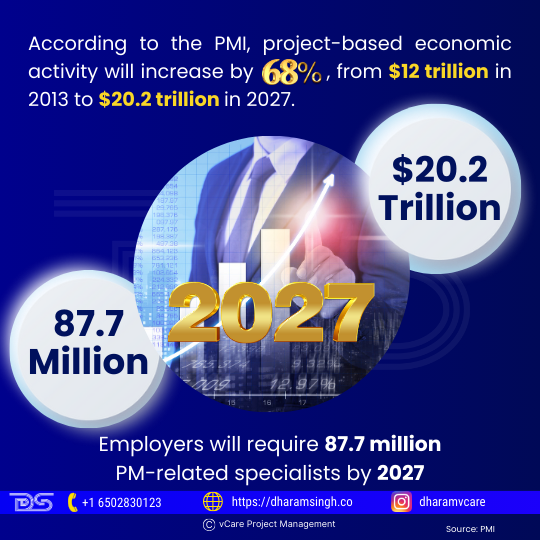
PMI Report
- 89% have at least one project management office (PMO), and 50% have multiple.
- Project work is expected to increase by 68% in the future, according to The State of Project Management report by Wellingtone.
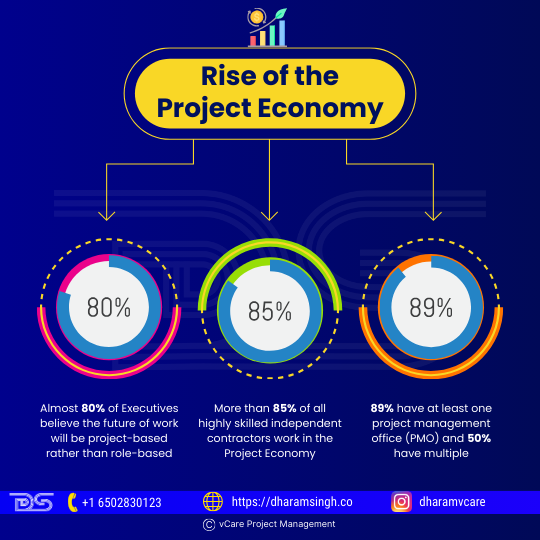
Rise of the Project Economy
Challenges for the whole organization
The world is changing faster than ever, and businesses need help keeping up. However, savvy companies understand that the solution lies in developing and leveraging their people’s most valuable asset.
According to Global Talent Trends 2022 studies, workers are more stressed than ever. Eighty-one percent report being at risk of burnout, and one in five blame working for a company whose values do not align with theirs.
Human resource and project managers face many challenges in the whole organization.
- Close Skill Gap
Planning and managing long-term skill development will become more important as people lead longer, more diverse careers. Digital skills are now expected, and knowledge of business processes and related concepts is considered a core competency in every worker’s skill set.
Analytical and critical thinking skills have progressed from the exception to the norm, while interpersonal and leadership abilities are more valued than ever. Yet, many businesses face crucial skill shortages, particularly in retail, construction, real estate, manufacturing, education, medical and health services. According to McKinsey, 87 percent of executives report or expect skills gap challenges in the next few years.
- Initiatives to improve hiring
Hiring talented, qualified people has become critical to business success in a world of labor shortages and job-hopping. But it takes work.
- According to Josh Bersin’s study, 74 percent of businesses in the United States underperform when hiring, and only 60 percent of newly created jobs are filled.
- Businesses are attempting to attract not only talented but also diverse employees: The State of DEI Efforts report states that Finding various candidates with appropriate qualifications is the most difficult challenge for 43 percent of respondents.
- Also, Glassdoor’s Diversity and Inclusion Workplace Survey states that 76 percent of job seekers and employees value a diverse workforce when evaluating companies and job offers.
- Leadership development
Living in a volatile, uncertain, complex, and ambiguous (VUCA) world has become the norm. Influential leaders must be agile, constantly reevaluate and iterate their leadership practices, and strongly desire to build resilience for the future.
Organizations must adapt to new levels of complexity and ambiguity due to the COVID-19 pandemic’s disruption of the global economy and traditional modes of operation. The recovery from COVID-19 and the long-term impact of its disruption remain unknown. However, many organizations plan to meet their strategic goals and objectives as things begin normalizing. They must be especially cautious in the VUCA world.
VUCA: Companies and managers must embrace versatility, agility, and discomfort to progress. Covid-19 was the year of the phygital revolution – the physical, digital, and online-offline workplace convergence. In such a VUCA environment, managers and companies must be versatile, uncomfortable, collaborative, and agile to progress in a Phygital world. Therefore, every company and leader must be skilled in being versatile, uncomfortable, collaborative, and agile.
- Workforce retention
The ‘Great Resignation’ has resulted in historic numbers of people quitting their jobs, with the following industries suffering the most:
- Leisure and hospitality
- Trade, transportation, and utilities
- Professional and business services
- Education and health services
- Manufacturing
- Construction
Businesses are grappling with the issue of how to retain employees. One solution is to provide employees with opportunities for learning and skill-based career growth. However, employees see professional development opportunities as the most important way to improve and change the company culture.
- The Workplace Learning 2022 Report states that 46% of L&D leaders said upskilling or reskilling was a top focus area this year; internal mobility, career pathing, and employee retention fell toward the bottom.
- According to The American Upskilling Study 2021 study, 66 percent of workers aged 18-24 ranked upskilling opportunities as the third-most important benefit in evaluating a new job, and 48 percent of workers in the United States would relocate for such opportunities.
- Enterprise agility
To thrive in a highly dynamic world, organizations must quickly adapt to changing technology, markets, and customer needs. Enterprise agility denotes a shift away from traditional hierarchical structures and disconnected teams toward an operating model that optimizes strategy, structures, processes, people, and technology.
Rather than being hindered by the relentless pace of change, agile enterprises are more likely to capitalize on emerging technologies and business trends to differentiate themselves from the competition. However, as per a McKinsey report, two-thirds of businesses say they need to prepare for workforce disruptions brought on by technological and market trends.
- The transformational potential of learning
Employees and organizations are moving together as they navigate the complexities of a rapidly changing world. Workers must embrace a culture of lifelong learning to remain relevant. The benefits for businesses are evident, with skilled workers becoming more agile and motivated. In addition, Upskilling and reskilling can transform society as a whole, allowing under-represented groups to participate in the economy and be more involved.
- Impact of Emerging Technologies
Emerging technologies continue to influence how we live, work, and interact in a world driven by digital solutions. Many technological advancements are beneficial: they increase productivity, make necessary services more accessible, and generally make our lives easier.
Emerging technologies such as artificial intelligence (AI), robotics, the Internet of Things (IoT), blockchain, cybersecurity, and big data can make products and services more widely available, particularly to those currently unable to use them.
Several significant benefits for business processes should also be considered. Businesses already use a variety of digital solutions to attract customers, such as applications and websites. By 2030, approximately 70% of companies worldwide will have adopted at least one type of AI technology, with other emerging technologies being implemented quickly. Thus, technological solutions will continue to automate and innovate our work.
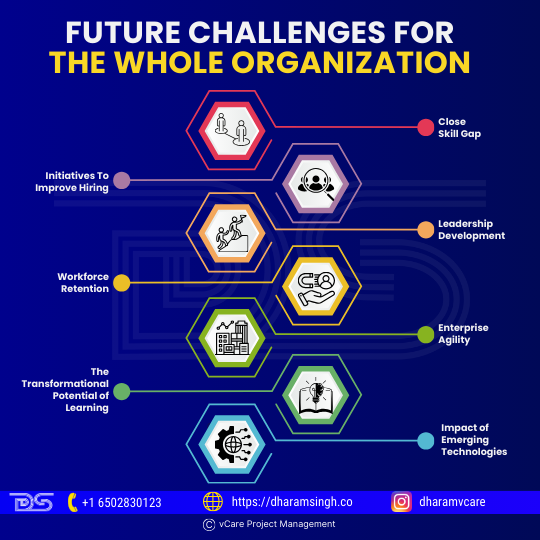
Future Challenges for the Whole Organization
Perspective Competency and Strategic Envisioning
A better approach would be to stop thinking about today’s challenges in terms of ‘project management.’ Instead, we must reframe the question to how we can do our work most efficiently. This also entails abandoning the notion of project management as a technical discipline in favor of viewing it as a collection of skills and disciplines required to complete work today. Christoffer Ellehuus, in the article Succeeding in the Project Economy, outlines four significant components for this phase.
- Strategy
Executing a strategy must be rooted deeply in the organization and must be understood by all. The biggest challenge is selecting the right work and eliminating unnecessary tasks. In addition, identifying opportunities for innovation, growth, and value creation are critical areas for improvement.
- Work
Work completion necessitates action in three areas: process expertise, workflow management, and innovation. The most challenging priority is managing multiple priorities and interrelated work streams. Project management is a skill that should be developed in every sector.
- People
80% of managers see the need to create conditions for leading in an environment of ambiguity. 79% know the challenge of leading through change or transformation as a priority. A significant shift in how leaders approach people management is required to nurture team members and build the capacity to deal with challenges.
- Self
A well-developed ability to manage and improve your capacity is immensely valuable. Therefore, the most urgent focus areas are to build creative, problem-solving, and critical-thinking skills.
Understanding Generation Z in the workplace
A new generation brings a new outlook on work. Generation Z is already an undeniable force in shifting corporate culture. By 2025, Gen Z employees will account for 27% of the workforce, bringing their expectations and values. There may be an area where an existing employee’s opinions, ideas, and working patterns vary. So, there should be an area to bridge the gap between the experienced and Gen Z employees.
Bridging the Gap – Experienced vs. Generation Z
Today, younger generations are entering the workforce. At the same time, older employees remain in the workforce for longer due to economic necessity. In the workplace, the experienced and Generation Z employees may have noticed a few challenges and questions to the management while allocating them a task together:
- Do these coworkers have difficulty conversing with one another?
- Do they appear to have opposing processes and preferences for completing their work?
- Have their differences hampered their ability to generate complementary ideas and collaborate on projects from start to finish?
- Do they find it difficult to relate to customers of different generations and adapt to their expectations?
- Are they having trouble identifying common motivators for their team?
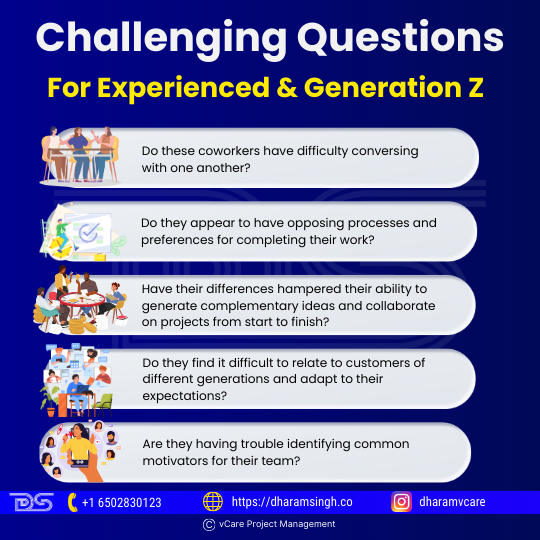
Challenging Questions For Experienced & Generation Z
But it might be better if the experienced employee tries to learn about Gen Z’s as they are thoroughly updated on technologies and adapted to hybrid working culture. Some aspects that may build the bond between experienced and Gen Z employees:
- Gather inputs from each other
- Live the culture
- Create opportunities for face-to-face interaction
- Facilitate frequent peer-to-peer recognition
- Form cross-generational teams
- Implement social technology for building relationships at work
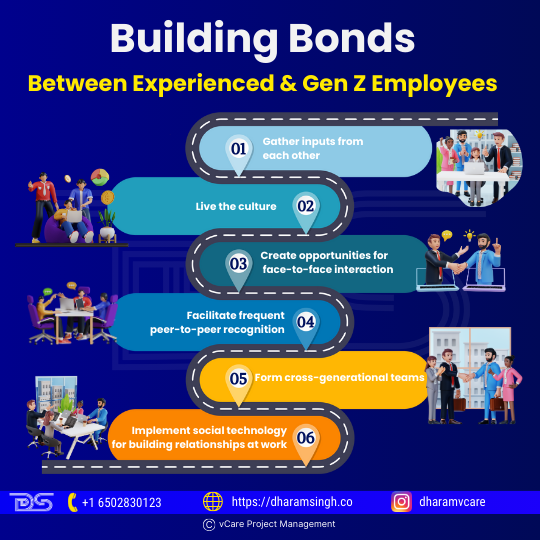
Building Bonds Between Experienced & Gen Z Employees
The Skills Challenges of the Future Workforce
Technology, globalization, demographics, social values, and changing personal expectations of workforce participants are causing a dramatic change in the future of work and the workforce. As per The Future of the Workforce study, there are four significant workforce causes of disruption:
- Demographic upheaval
- Ever-present and changing digital technology
- An accelerated rate of change and business-model innovation
- The rise of a new social contract
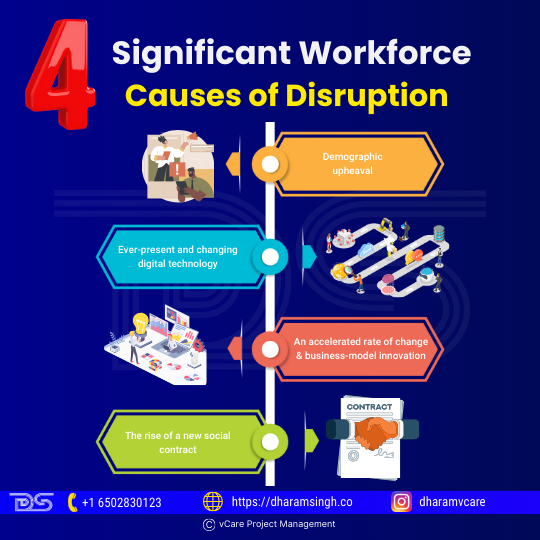
Significant Workforce Causes of Disruption
To survive the hypercompetitive, fast-paced future of work, an organization must be laced with strong interpersonal connections across a diverse workforce. In the aspect of a better workforce in the future, the employees need to necessitate the combination of four key work skills:
- Digital tools and technological abilities
- Good understanding of analytics and data
- Business management abilities
- Design and creative abilities
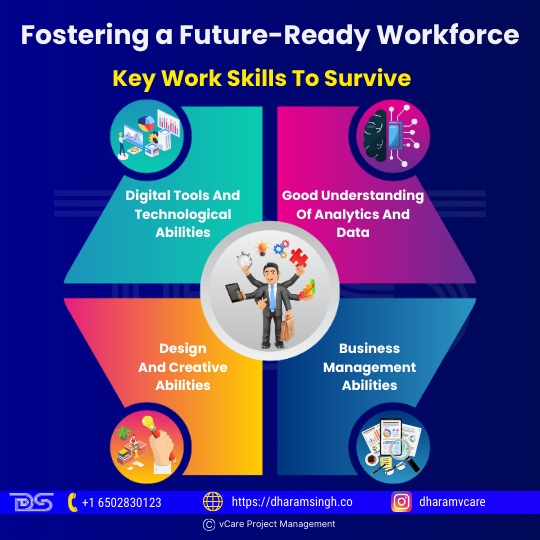
Key Work Skills to Survive
Get adapted to change
The projectification of work has rapidly shifted the nature of most professionals’ work, moving away from routine operations and decisively toward project leadership. In this new world, executives must answer three critical questions.
- Is your organization prepared to thrive in the project-based economy?
- Do professionals in your organization have the necessary adaptive mindset to carry out critical projects?
- Do your project managers have the business skills to prioritize competing workstreams and align with shifting business priorities?
The way forward
Great projects don’t just improve work; they improve the world. Key characteristics that leaders must possess to excel in a project-driven world:
- Project management skills
- Product development and subject matter expertise
- Strategy and business acumen
- Leadership and change management skills
- Agility and adaptability
- Ethics and values
Managers and organizations must become comfortable devising strategies driven by change rather than efficiency to transform themselves and thrive in the new project economy. They must delegate more resources, budgets, and decision-making authority to projects and project teams rather than the traditional departmental hierarchy. They will need to develop project management skills and adopt new technologies. Finally, they must encourage a shift in emphasis away from inputs and outputs and toward outcomes and value.
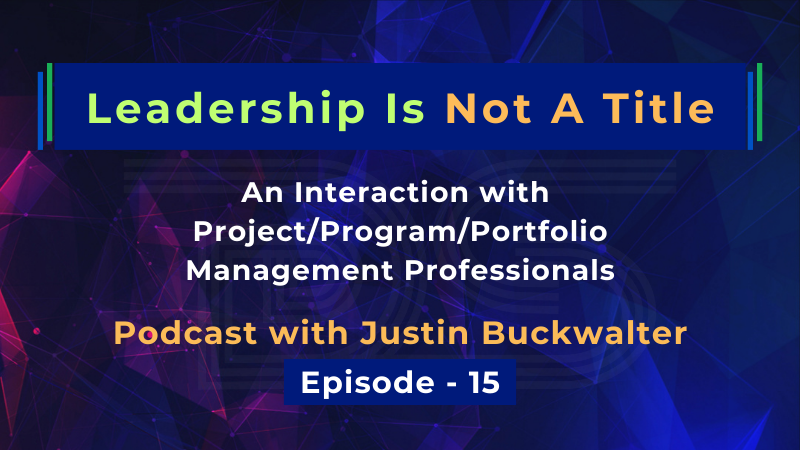
by DharamCW | May 8, 2024 | Leadership in Project Management
Leadership Is Not A Title | Justin Buckwalter | Dharam Singh | Episode 15
In this insightful episode, Justin Buckwalter, PfMP, PgMP, PMP, PMI-ACP, PMI-RMP joins me in trying to dismantle the conventional views on leadership. We delve into why leadership should be seen as a behavior, not just a role. Through a compelling discussion, we have highlighted how anyone can embody leadership by influencing positively and initiating change, irrespective of their position.
Discussion Points:
+ Leadership as Action: Why it’s about what you do, not your title.
+ Essential Traits of True Leaders: What makes a leader stand out?
+ Universal Leadership: The importance of fostering leadership at every level.
+ Leadership SWOT Analysis: A tool for crafting achievable development goals.
+ Conflict Management: Techniques for leaders to navigate workplace challenges.
+ Cultivating Inclusivity: Strategies to nurture a welcoming, diverse work culture.
+ Motivation vs. Power Misuse: The dual-edged impact of leadership influence.
Join us to explore how effective leadership transcends titles and becomes a part of the organizational fabric, empowering all to contribute meaningfully.
🚀 Seize the opportunity to Elevate Your Project Management Career:
– Register for my upcoming PgMP/PfMP Success Story Webinars: https://bit.ly/4aVhrd6 / https://bit.ly/4aycVBj
– Book an obligation-free consultation session on Project management Career, training, and certifications: http://talktodharam.com
– Discover training offers and certification discounts: https://bit.ly/3jWVepD
– Stay updated with our Q&A series and certification success stories by subscribing to the vCare Project Management YouTube channel at https://bit.ly/2YF0wJl
– Follow my podcasts and interviews with Project Management Experts on YouTube at https://bit.ly/2NDY8wd
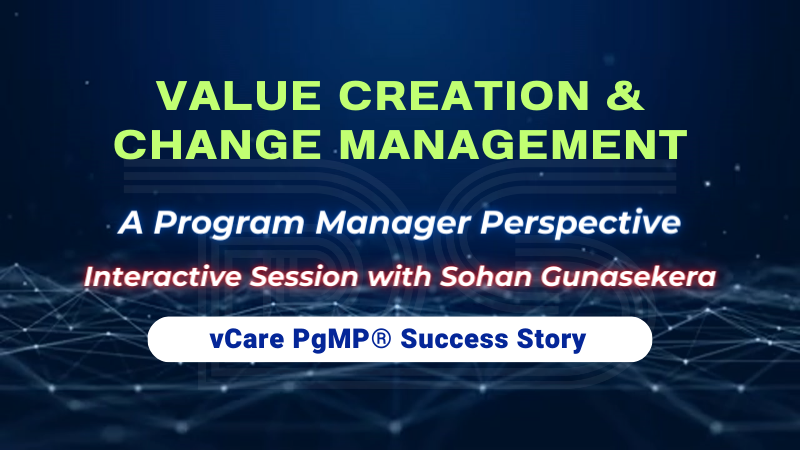
by Dharam CW2 | Mar 3, 2024 | Professional Development Webinars
🌟 Exciting Webinar Alert! 🌟
I’m delighted to invite you to a special webinar where we’ll delve into the nuances of transformative project leadership. I’m your host, and joining us is the esteemed Sohan Gunasekera from Melbourne, Australia, a visionary in Project, Program, and Portfolio Management.
In this session, Sohan will share his profound insights on:
– The impact of short-term corporate gratification on organizational goals.
– The importance of sustained investments for long-term organizational performance.
– Various approaches to culture transformation.
– Essential change leadership competencies for program managers.
– Best practices for managing diverse teams in change management.
– Strategies for influencing transformation through mindset and behavior changes.
🔗 Reserve your spot now: https://bit.ly/4bd68h8
Session Date & Time:
07th Mar’24 (Americas)
06:30 PM – 07:30 PM (PST) / 07:30 PM – 08:30 PM (MST) / 08:30 PM – 09:30 PM (CST) / 09:30 PM – 10:30 PM (EST)
08th Mar’24 (ASEAN & Oceania)
09:30 AM – 10:30 AM (WIB) / 10:30 AM – 11:30 AM (SGT/MYT) / 11:30 AM – 12:30 PM (JST/KST) / 12:30 PM – 01:30 PM (AEST) / 01:30 PM – 02:30 PM (AEDT) / 03:30 PM -04:30 PM (NZDT)
As a mentor, I’ve had the privilege of guiding Sohan through his PgMP exam journey, and he’s here to pass on that knowledge. It’s an opportunity for all project management professionals to earn 1 PDU and elevate your expertise.
Take advantage of this chance to enhance your skills and broaden your project management horizon.
🚀 Elevate Your Project Management Career:
– Book an obligation-free consultation session on Project management Career, training, and certifications: http://talktodharam.com
– Discover training offers and certification discounts: https://bit.ly/3jWVepD
– Stay updated with our Q&A series and certification success stories by subscribing to the vCare Project Management YouTube channel at https://bit.ly/2YF0wJl
– Follow my podcasts and interviews with Project Management Experts on YouTube at https://bit.ly/2NDY8wd
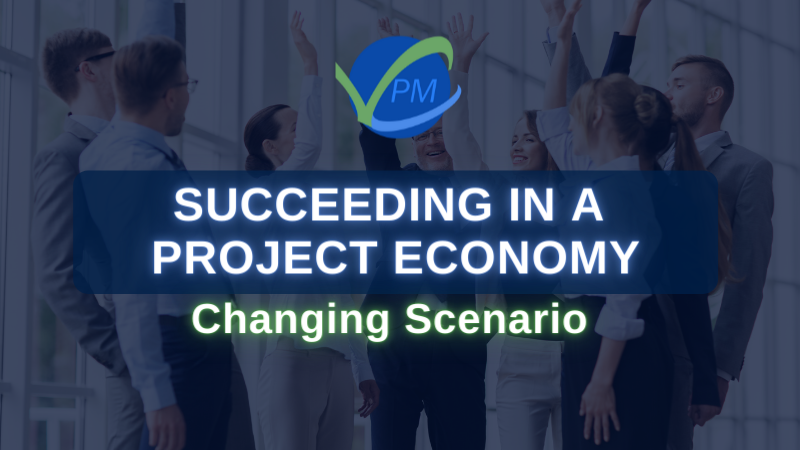
by DharamCW | Nov 9, 2021 | Project-Program-Portfolio Management Knowledge
What is a Project?
PMI defines endeavour as “a temporary endeavor undertaken to create a unique product, service or result”. Projects give an organisation focus to excel. “Project” is a huge, broad word that has such rich possibilities in terms of helping define how people do what they do and how organisations achieve their goals, create change, and deliver value. We shouldn’t think of projects by their features or attributes but on what needs to be done and figure out the best way to do it. It is expected that by 2027, employers will need approximately 87.7 million individuals working in project management-oriented roles.
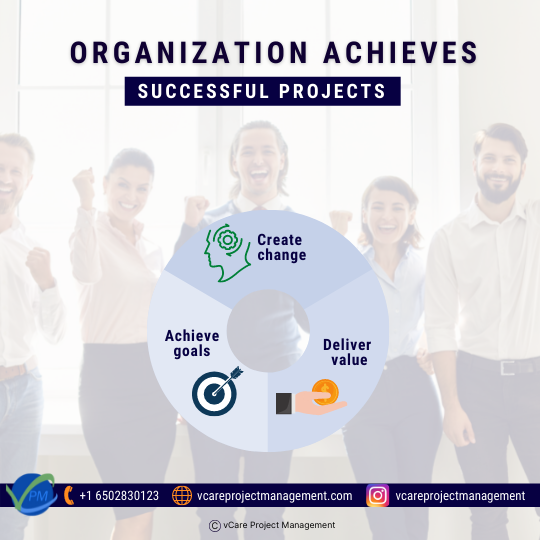
Successful projects
Everyone has a project. People have projects on behalf of themselves and on behalf of others; they have their projects, and they have collective projects. We do projects at school, and we carry out projects at work. Add to that all our spare time projects, and how it is sometimes hard to tell work projects from spare time projects. Projects cut across. (Jensen, 2012)
What is project economy?
PMI defines project economy as a Paradigm shift in the business world toward using projects to handle work and solve problems. It emphasises that organisation in general needs project leaders who can help to manage real-world challenges. The Pulse of the Profession report well backs this aspect.
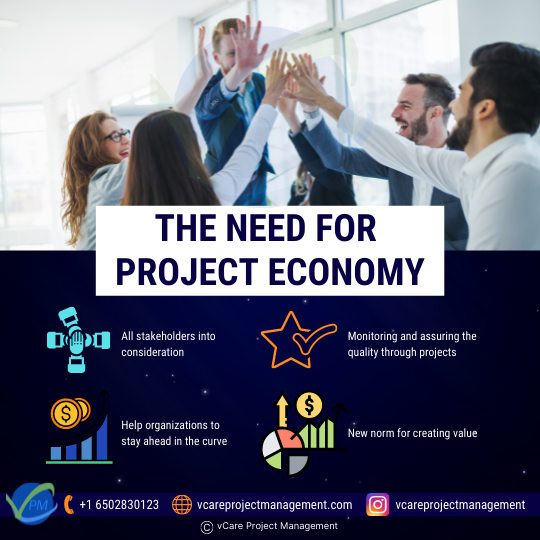
The Need for Project Economy
The Need for Project Economy: Changing Scenario
Projects with unique objective induce a change in the organisation and society at large. The project approach takes all the stakeholders in the process of obtaining the project objective. Project managers are required to be inclusive, and they cannot take a parallel approach. The project economy drives this change.
Though the management thinkers like Frederick Taylor, Henry Ford, Dr William Edwards Deming recommended continuous improvement of the business’s operations, these improvements were considered projects and executed as projects. Advancements in computing and technology have driven operational excellence at the core. Yet, disruptive technologies and the speed of technology growth drive differently, and it calls for many projects. Projects are seen as a new norm for creating value and help organisations to stay ahead in the curve.
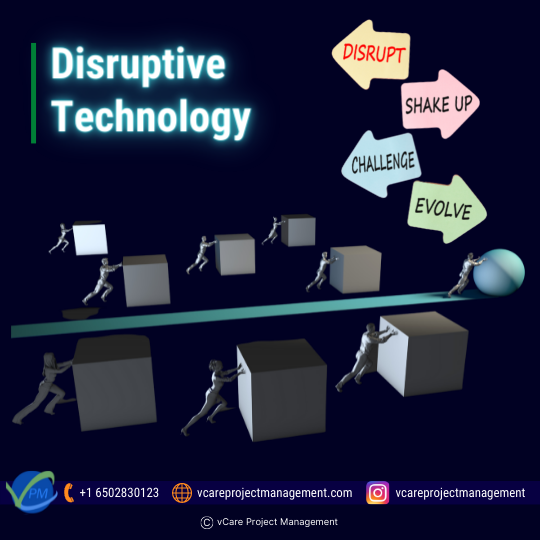
Disruptive Technology
Project work has been seen as more administrative and seen as a low value from the frontline of the management due to extensive documentation and paperwork. Rationale, business Case and benefits were not given sufficient importance in project management methodologies. As the technology and tools for collaboration are fast-changing, agile triggers, project aspects like “Working software over documentation”, “individual interactions over process and tools”, etc., are largely adopted. Technology and engineering help bespoke run the project, making the project managers at the centre of the process. With automation taking over, projects are becoming a critical part of the organisation. Now everything around the people lives are becoming projects, and this fact can be emphasised with every professional’s career as a good example.
People keep track of changes from previous jobs, recording and sharing their learnings. They move from one job to another compared to previous situations where people stuck to one job for a longer tenure. As they move to different companies, the learning is multi-fold and its applied cutting across domains enriching experience.
As organisations are growing more in complex and chaotic environments, “Project Oriented Methodology” helps define action and helps manage change appropriately with a specific set of goals. Project management methods help to improve the performance of individuals and teams.
Monitoring and assuring the quality through projects help us assess its value and deliver it. Project management strategies help to keep costs on budget and reduce the risk of budget overrun. Learning lessons from failure and being agile helps to adapt. Project professionals play a pivotal role in managing the projects and contribute with the right blend of technical and people capabilities. Hence projectification would be the future order, reiterating the fact, where it is expected that employers will need around 87.7 million project management professionals by 2027.
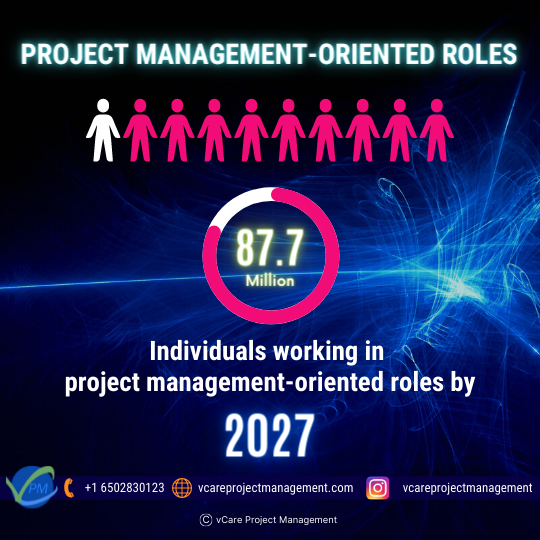
Project Management-Oriented Roles
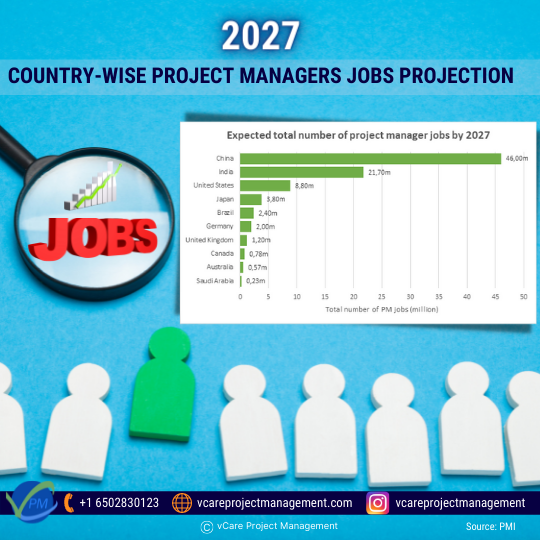
Country-wise Project Managers Jobs Projection
What is Projectification?
Projectification, the term was introduced by Christophe Midler in 1995 in his research paper “Projectification of the Firm: the Renault Case”. In this, he analysed the relationship between project management and organisation, with a case study of “Renault” on “Projectificiation”, an organisation undergoing a four-phased transition from the 1960s. This study is believed to be a construct of project orientation taken from the novel management approach “Management by Projects” by Gareis in 1989.
“The Project Revolution- How to succeed in a project Driven World”
In the book “The Project Revolution- How to succeed in a project Driven World”, Antonio Nie recommends a Project canvas composed of 14 dimensions that are capable of influence and determine project success across four domains:
- Why?
- Why is this project taken up?
- What is the purpose and passion behind the rationale?
- Why successful implementation important?
- Who?
- Who is accountable?
- Governance of resources and delivery
- What, How and When?
- Details of Definition, Design, Plans, Milestones, Cost, Risk, etc.,
- Power Skills: Empathy, Motivation, Change management, Communication.
- Where?
- Culture
- Prioritisation
- Organisation context
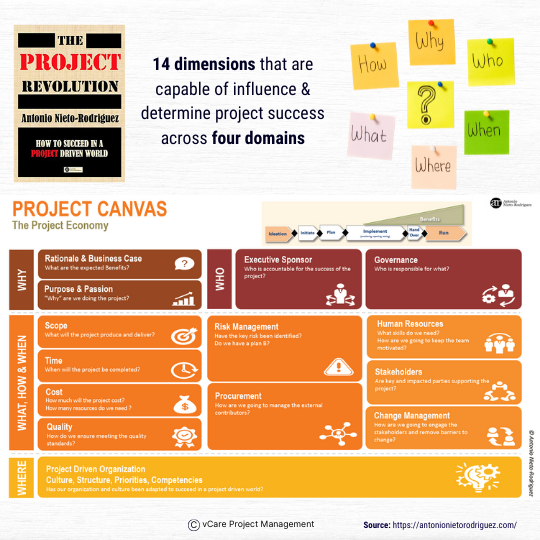
The Project Revolution
Check out my discussion on this topic with Reinhard Wagner in YouTube
You can subscribe and follow my podcasts and interviews with Project Management Experts on YouTube at https://bit.ly/2NDY8wd
You can subscribe to vCare Project Management YouTube Channel to catch future videos of our Q&A series and certification success stories using the link https://bit.ly/2YF0wJl
For any questions related to Project Management career, training, and certifications, you can book an obligation free 15 minutes session with me by visiting talktodharam.com
Conclusion
Projectification is becoming the order of the day, and it’s going on increasing trends. As a project manager or project professional, it’s important to understand how organisations, government and stakeholders are evolving. The disruptive changes happening in technology and rapid growth is influencing many facets of project management. As project professional, as we start manoeuvring them, we can create value for others and us for a better world.
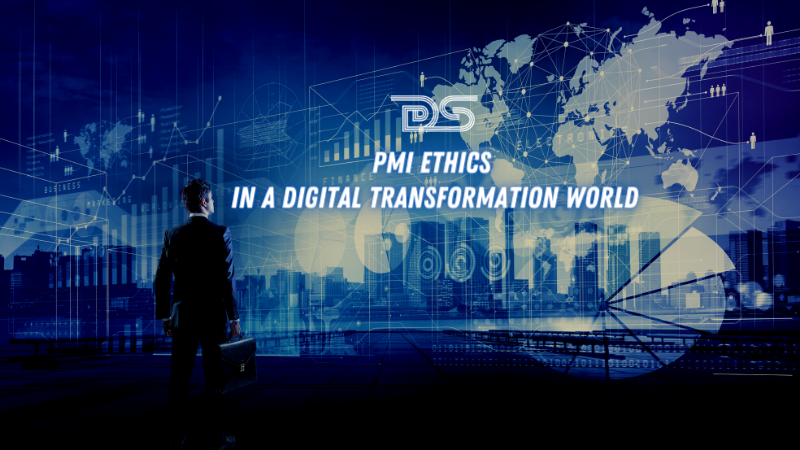
by DharamCW | Apr 20, 2021 | General
According to the PMI (Project Management Institute), “Ethics is about making the best possible decisions concerning people, resources and the environment. Ethical choices diminish risk, advance positive results, increase trust, determine long term success, and build reputations. Leadership is dependent on ethical choices”. Ethics represent a crucial differentiator in a highly competitive market where reputation and values are highly appreciated among the Project Management Professionals.
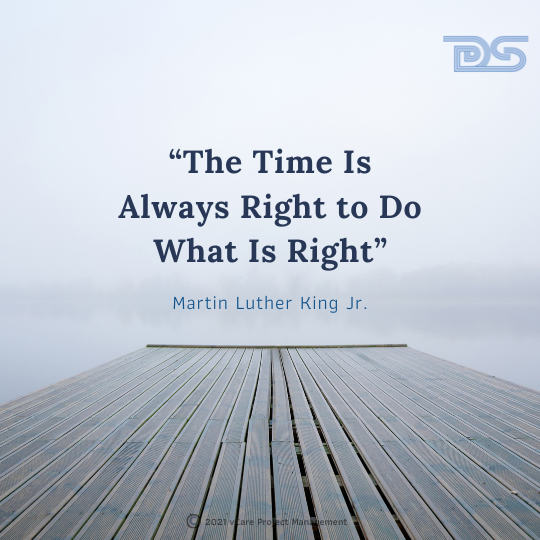
The Time Is Always Right to Do What Is Right
Martin Luther King Jr. said, “The Time Is Always Right to Do What Is Right”. As project managers/program managers or portfolio managers, we must make critical decisions daily. Though in the evolving digital transformation world, many decisions might go unnoticed, few do get noticed, as critical ones. These decisions have a profound impact on people, resources, and the environment. Some decisions might have led to conflicts, dilemma, or the creation of new risks.
What is Ethics, and what is the Role of PMI?
Ethics is the branch of knowledge that deals with moral principles. It involves steps, including systematizing, defending, and recommending concepts of right and wrong behaviours.
Regarding ethics at PMI, in the year 1981, the PMI team formed the PMI Board of Directors on Ethics, Standards, and Accreditation. The current PMI ethics document outlines the essentials of ethics based on Vision, Responsibility, Respect, Fairness, and Honesty. PMI expects its members to adhere to these codes of ethics to uphold its values.
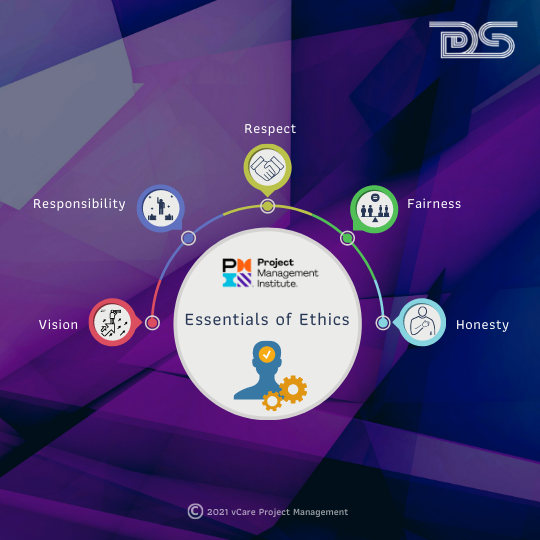
Essentials of Ethics
When the whole world is fighting the COVID-19 situation, and demand for digital transformation projects is at an all-time high, PMI professionals need not ask for a better time to establish high ethical standards. Let’s understand the key challenges a PMI trained professional faces in the current digital transformation world.
Digital Transformation
Digital transformation is the process of using digital technologies to create new — or modify existing — business processes, culture, and customer experiences to meet changing business and market requirements.
There are four types of digital transformation: business process, business model, domain, and cultural/organizational. We often see corporations focused solely on the process or organizational transformation.
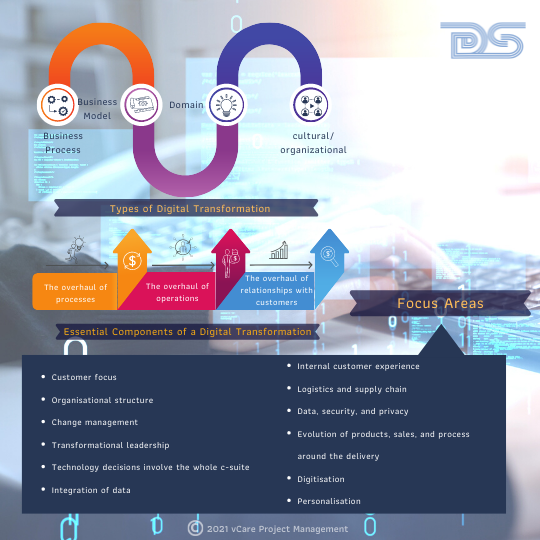
Digital Transformation
There are three essential components of a digital transformation:
- The overhaul of processes
- The overhaul of operations, and,
- The overhaul of relationships with customers.
The crucial elements that every digital transformation program needs to focus on are,
- Customer focus
- Organisational structure
- Change management
- Transformational leadership
- Technology decisions involve the whole c-suite
- Integration of data
- Internal customer experience
- Logistics and supply chain
- Data, security, and privacy
- Evolution of products, sales, and process around the delivery
- Digitisation
- Personalisation
The key aspects of the digital transformation world could have a major impact on Ethics.
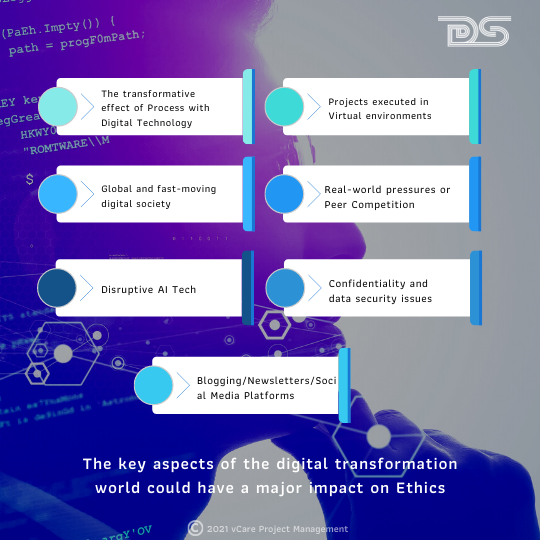
Major impact on Ethics
The transformative effect of Process with Digital Technology: Award-winning Author James Moor in 1985 mentions the transformative effect Digital Transformation could create. He cites the example transformation of manual votes to Electronic Voting Machines, which might benefit from speed and accuracy. On the contrary, it could impact security, vulnerability, transparency, and trustworthiness related issues.
Projects executed in Virtual environments: Today, the projects get implemented in remote places – Home/Office/Small Office combinations. People are working from remote, and it has become the new normal. People significantly use collaboration tools and in some occasions even communicate using social media, which could be manipulative.
Blogging/Newsletters/Social Media Platforms: Professionals tend to share the experience and insights reflecting upon the work ecosystem. Either sharing happens as an experience in a newsletter or a blog post, or it could be even a Twitter thread or a simple tweet reflecting a view. This act is typically done by those who tend to be expressive even within a professional organizational setup.
Global and fast-moving digital society: Communications spread very fast, and a diverse global culture leaves very little control. Digital technology, which is supposed to help leverage, could turn dangerous. The expectation for responsiveness sometimes leaves very little room for interpretation.
Real-world pressures or Peer Competition: Today’s real-world information sharing creates unwarranted peer pressure. This pressure might develop dilemmas and force individuals towards adverse decision-making. Sometimes, due to competitive peer pressures or financial pressures, even the employees’ health and safety concerns might get overseen.
Confidentiality and data security issues: Enhanced digital transformations across the globe have made data exchange easier. In the case of a data expose, it is vital to understand what is exchanged and what is the importance of the exchanged data. Lack of understanding of the data classification at appropriate levels could become risky when the proper accountability level could not be ascertained.
Disruptive AI Tech: Disruptive AI tech such as Chatbots, Speech Recognition Systems, etc., has made the way we think of data and decision making. Too much dependence or flawed inference might have an impact.
Ethics focus on PMIs Performance Domains & Digital Transformation
When a portfolio/program/project vision is established and defined, observable outcomes between the current state and future state as part of the digital transformation must be counted in. The key components that would impact the above said performance domains would be done with re-imagination, cultural change, and cross-functionality.
Digital transformation might have changed in a newer business model, new product focus, and a more contemporary way of working. Digital transformation is about getting the technology right and building necessary support and buy-in from the people managing resistance. Business processes need to be horizontally redesigned to enable collaboration across the teams.
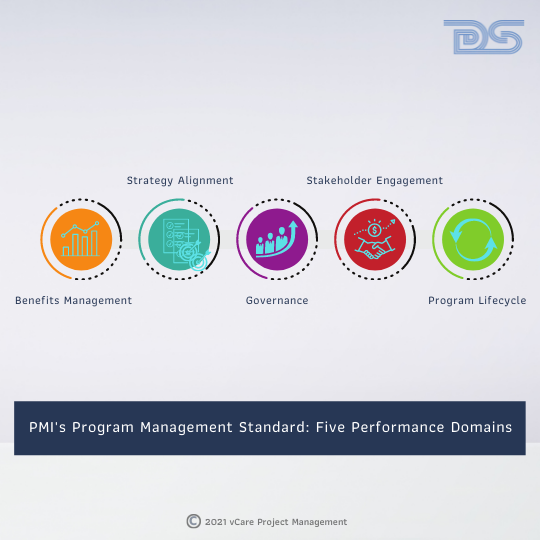
PMI’s Program Management Standard
PMI’s Program Management Standard defines five performance domains that can be integrated with ethics, giving a significant shift in ethics adoption, and may help in improving overall digital transformation initiatives. They are:
- Benefits Management: Benefits profile, which would be based on outcomes and measurement, has to have the ingredients of the ethics as well.
- Strategy Alignment: Strategic alignment to focus on the changing business environment and strategic targets on digital transformation must be governed through ethics.
- Governance: Governance focus and establishes control related to programs. Governance would bring discipline and ethics into the broader organizational structure.
- Stakeholder Engagement: Stakeholders to be kept well informed on the ethical aspects of getting involved whenever any changes in stakeholders.
- Program Lifecycle: Given a structure and suggested flow for a program, the ethics principle has to be adopted to address dilemmas related to circumstances of a business and initiative.
5As Decision-Making framework
PMI has recommended the 5A’ss decision-making framework outlines with Assessment-Alternatives-Analysis-Application-Action. The 5A’s assessment helps to collate all the facts about the ethical dilemma. It considers all your choices. Subsequently, decision candidates are identified and tested for their validity. Apply these principles to the candidates and make the final decision.
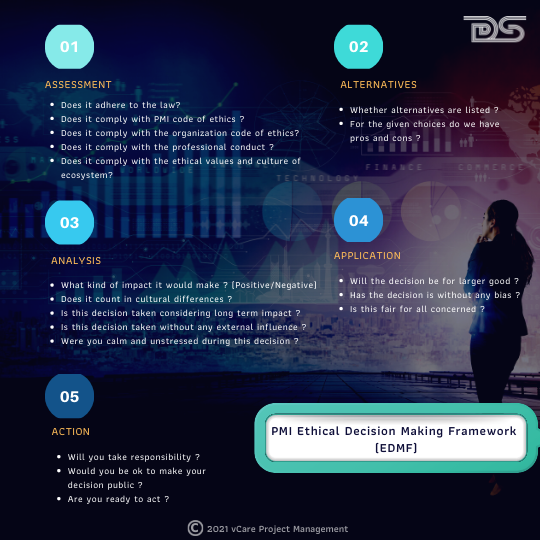
5As Decision-Making framework
The decision-makers, when they adopt the 5A decision-making framework, the following checklist:
Assessment
- Does it adhere to the law?
- Does it comply with PMI code of ethics ?
- Does it comply with the organization code of ethics?
- Does it comply with the professional conduct ?
- Does it comply with the ethical values and culture of ecosystem?
Alternatives
- Whether alternatives are listed ?
- For the given choices do we have pros and cons ?
Analysis
- What kind of impact it would make ? (Positive/Negative)
- Does it count in cultural differences ?
- Is this decision taken considering long term impact ?
- Is this decision taken without any external influence ?
- Were you calm and unstressed during this decision ?
Application
- Will the decision be for larger good ?
- Has the decision is without any bias ?
- Is this fair for all concerned ?
Action
- Will you take responsibility ?
- Would you be ok to make your decision public ?
- Are you ready to act ?
Benefits:
When the portfolio managers and program managers adopt the above-said approach outlined in the PMI code of ethics, it provides the following benefits:
- Elevates the profession and raises future standards
- Increases the faith and trust among peers
- Imprints on individual moral mindsets and behaviors
- Improves business relationships across the board
- Promotes fair decision making
- Reduces project risks
- Reduces anxiety and stress and ultimately turnover in projects
Conclusion
Transparency and integrity must be the core values which has to be established by the professionals. The data must be used in responsible and ethical ways during the digital transformation initiative. Data collection has to be based on the ethics principle called “Informed Consent.” The actions cannot be intrusive, manipulative, or disrespectful to others.
Trust must be established among the individuals, groups, or organizations involved in the digital transformations. This trust can be created by establishing data provenance, traceability from the source to the user interface. Program managers or portfolio managers have to act without any bias and with a high level of integrity and impartiality. The same has to be established for the clients, suppliers, and subcontractors without any favoritism and giving them an unfair advantage.






























Recent Comments